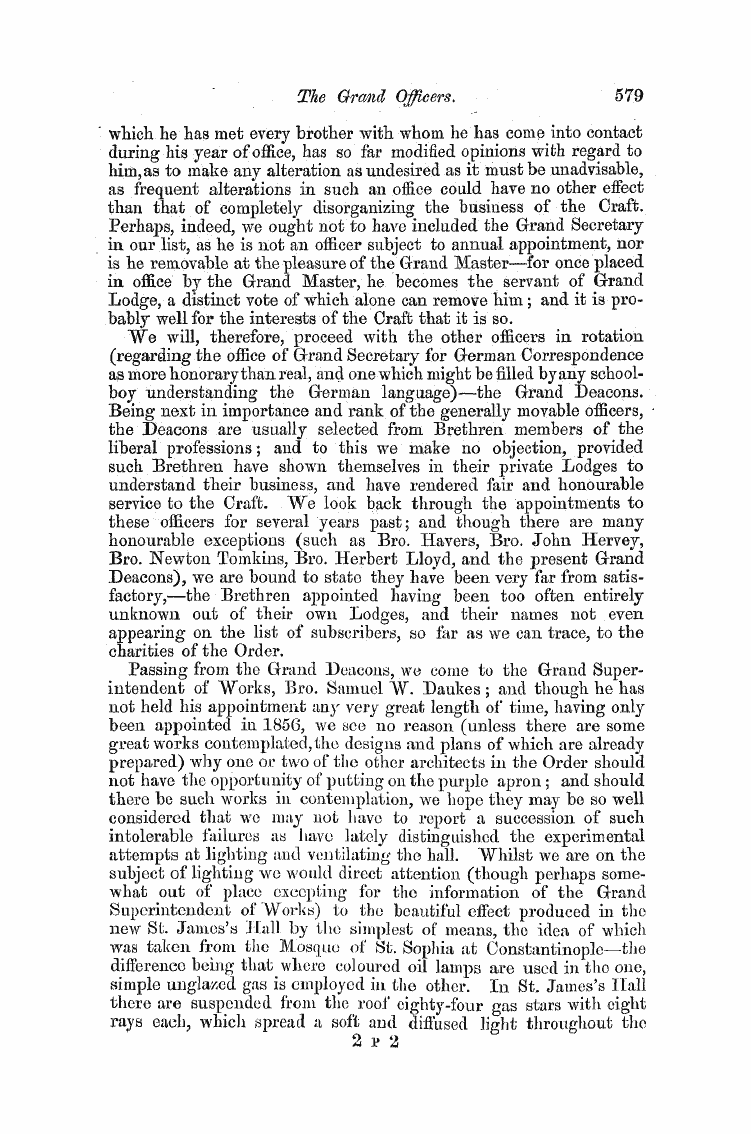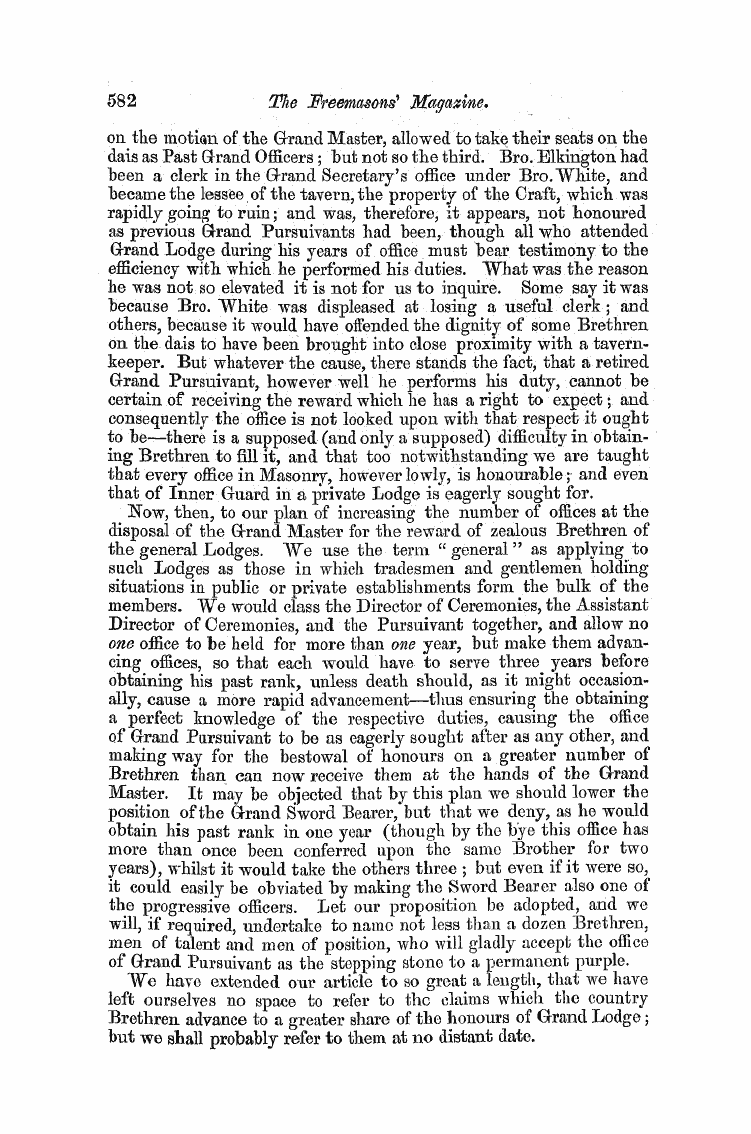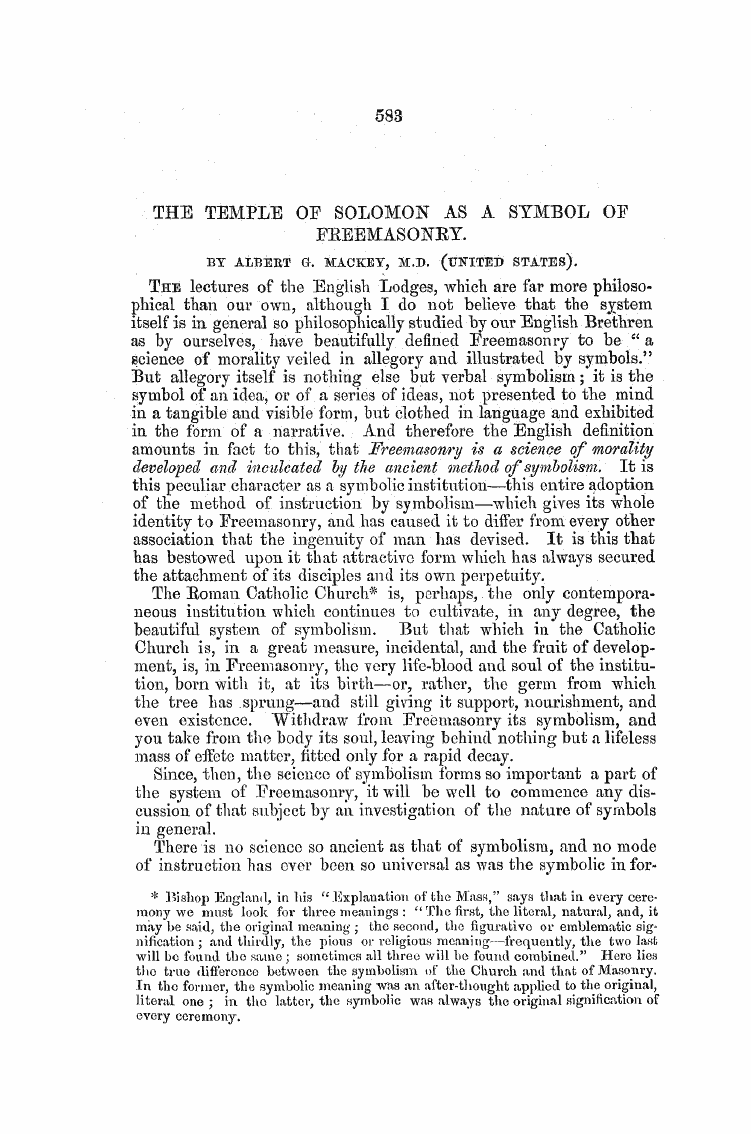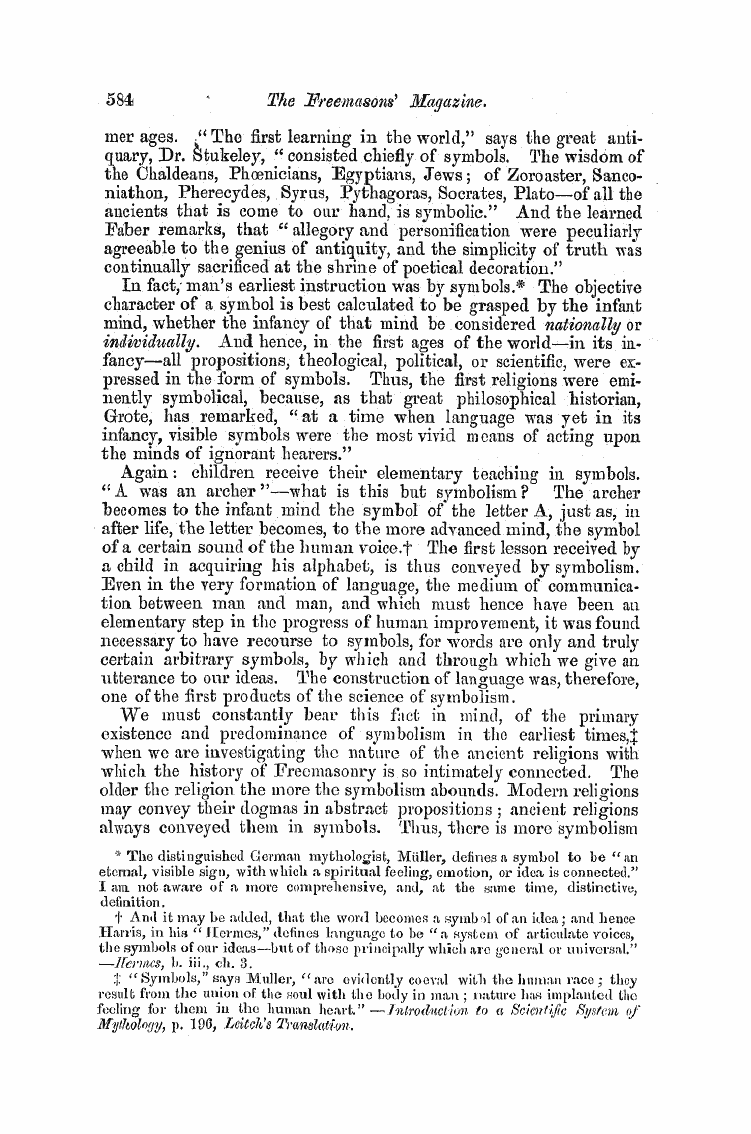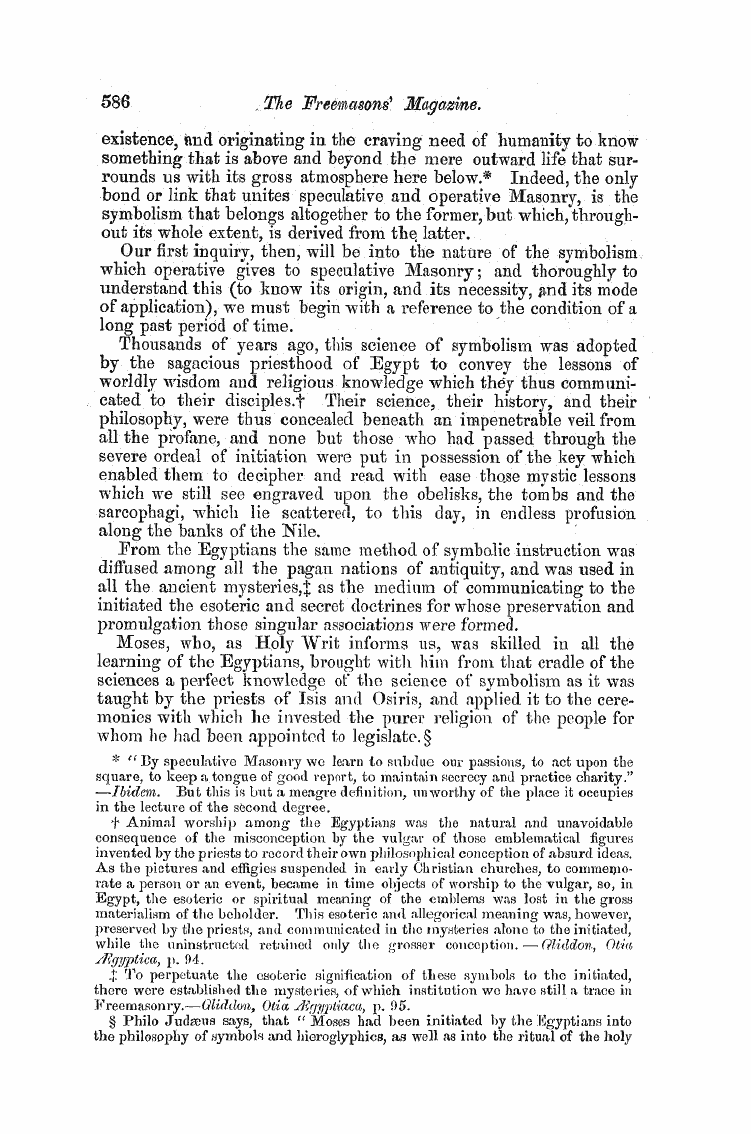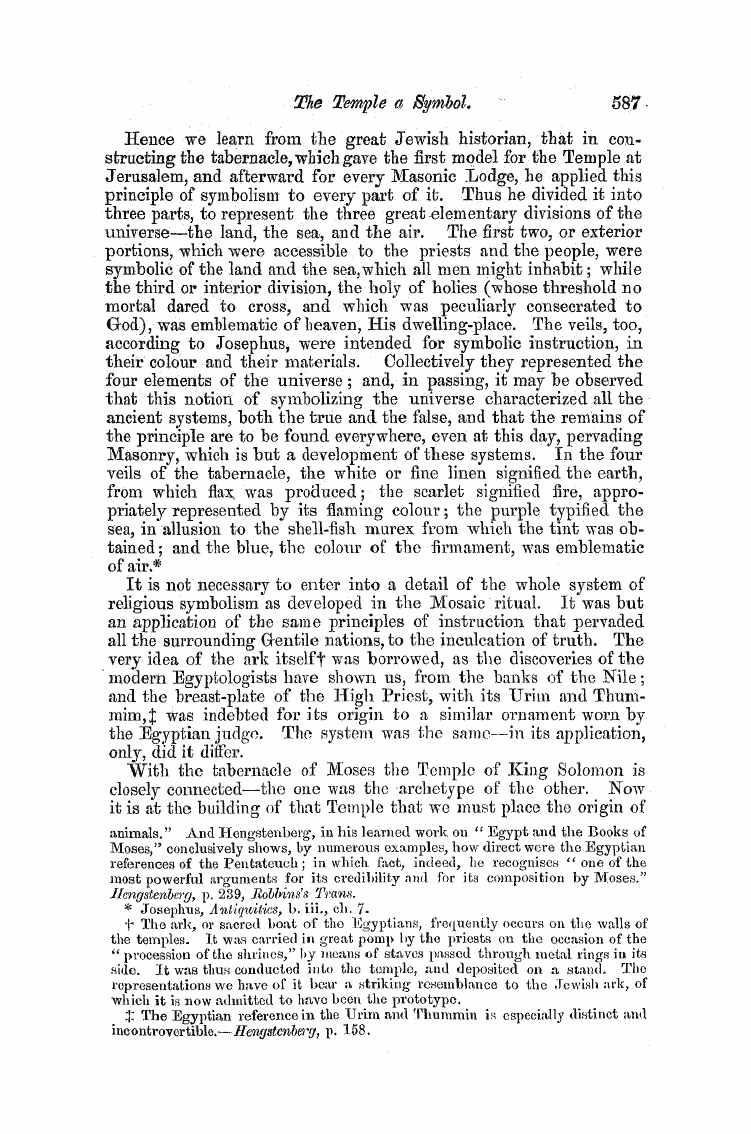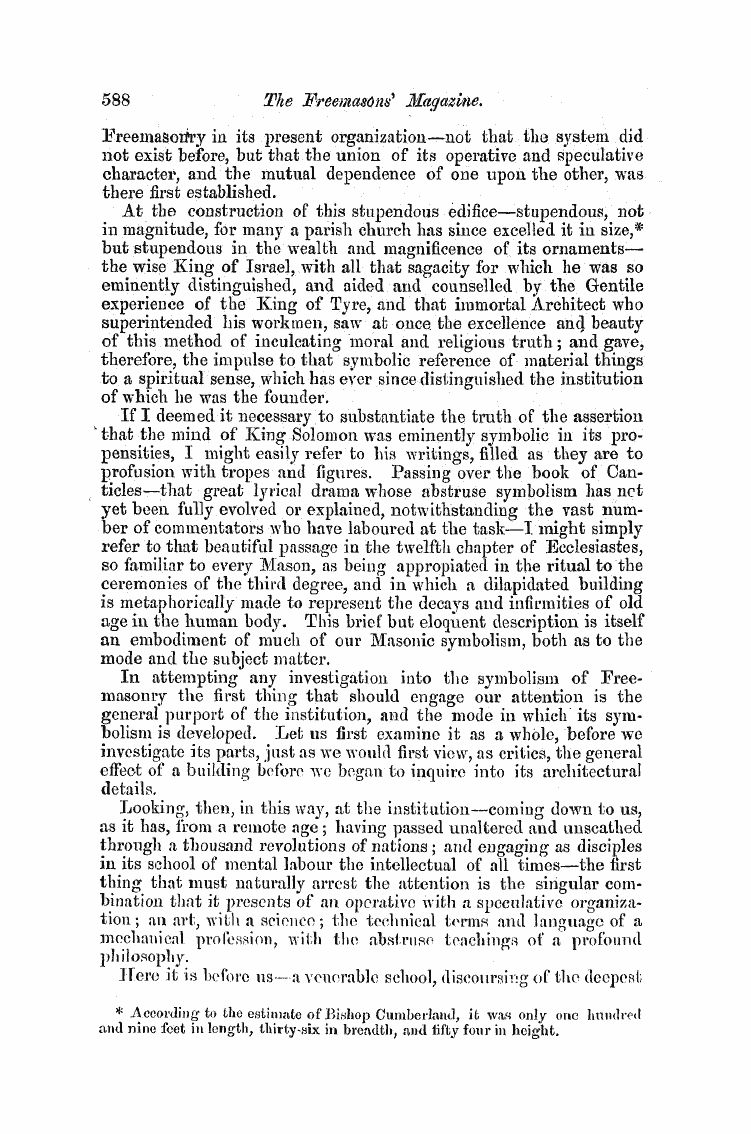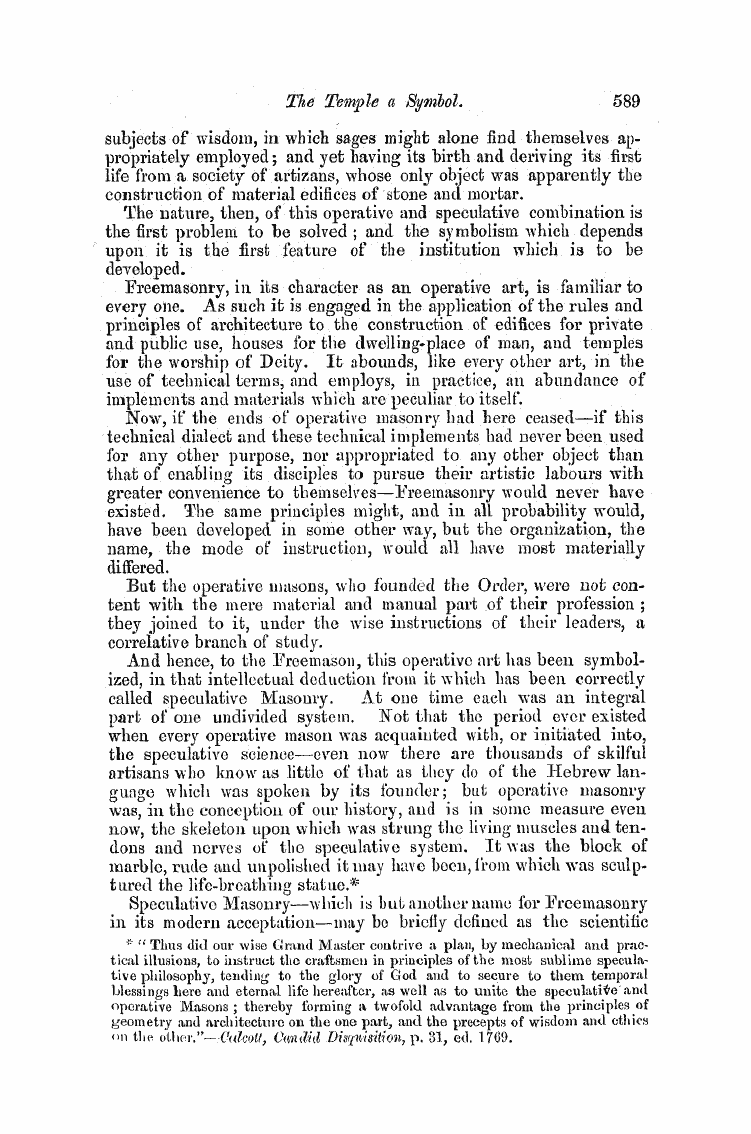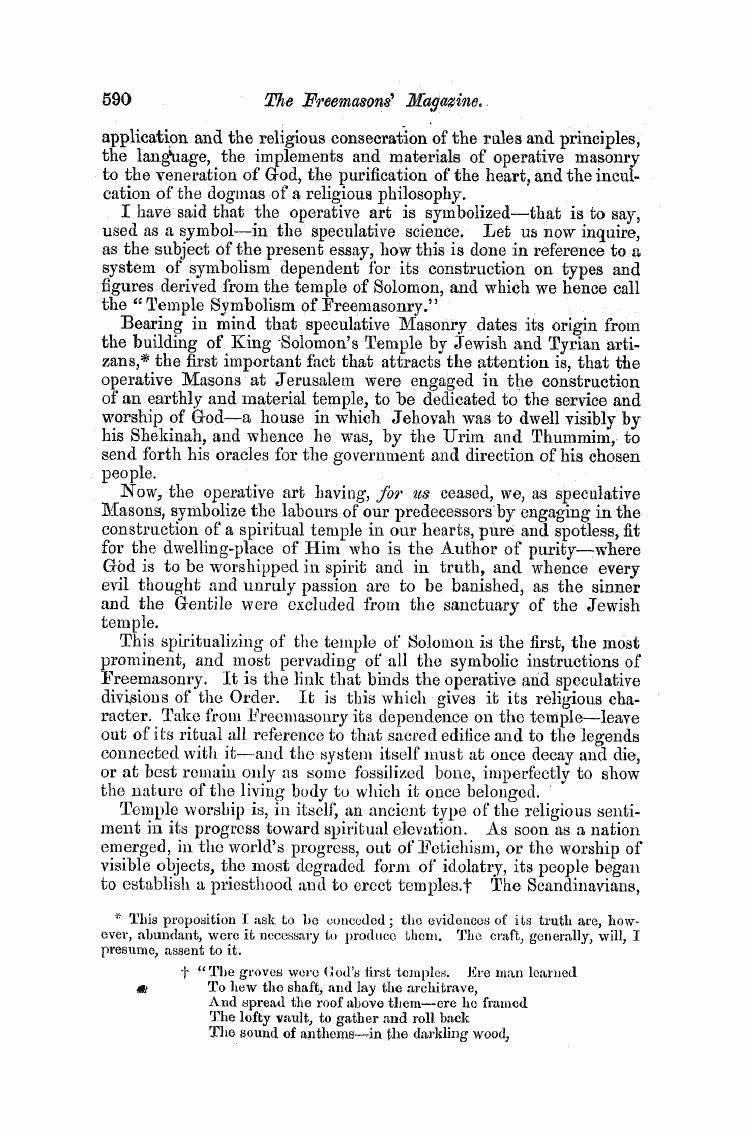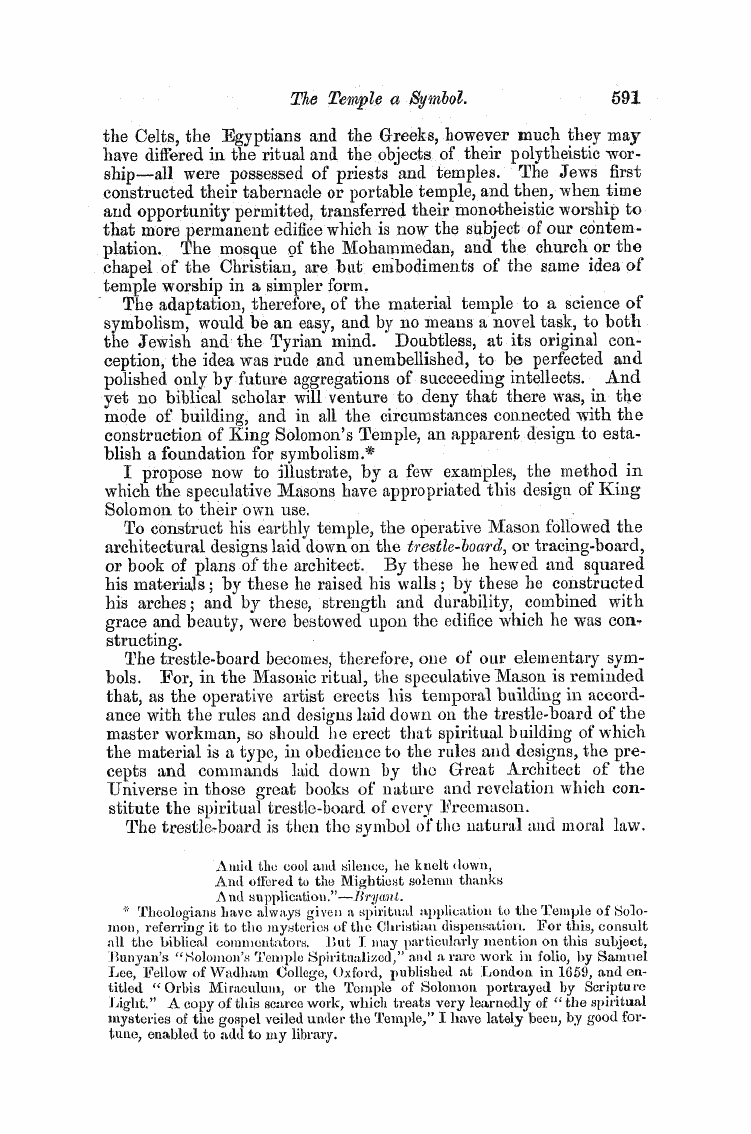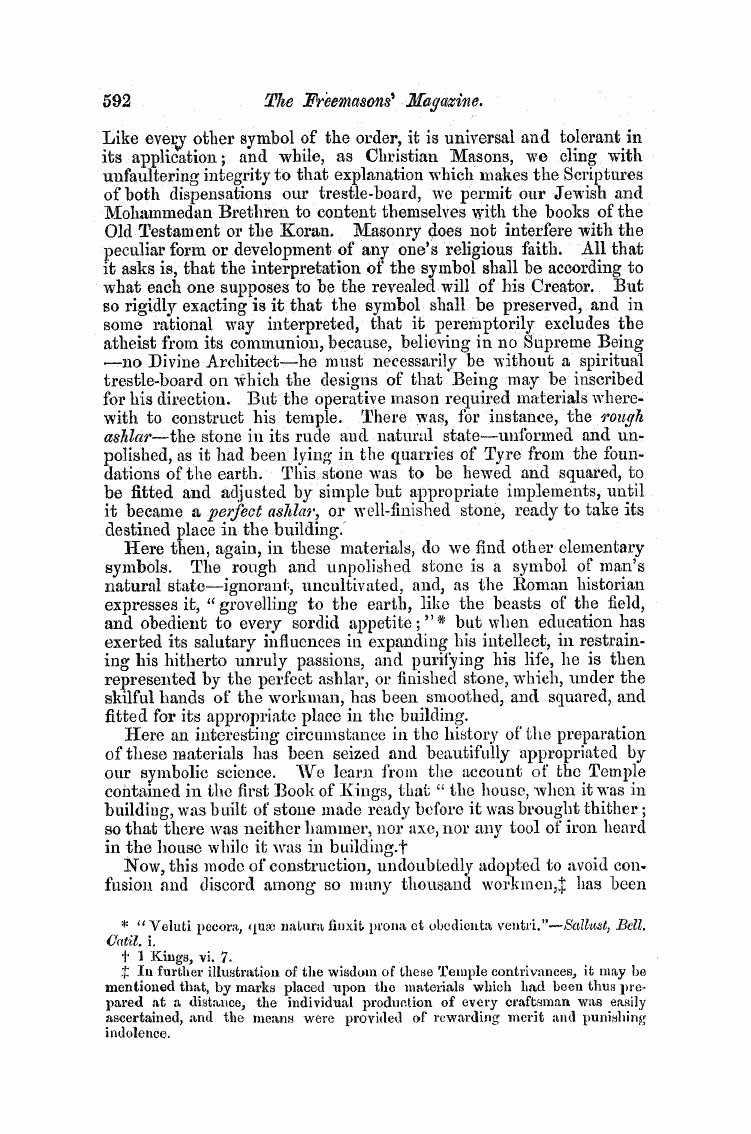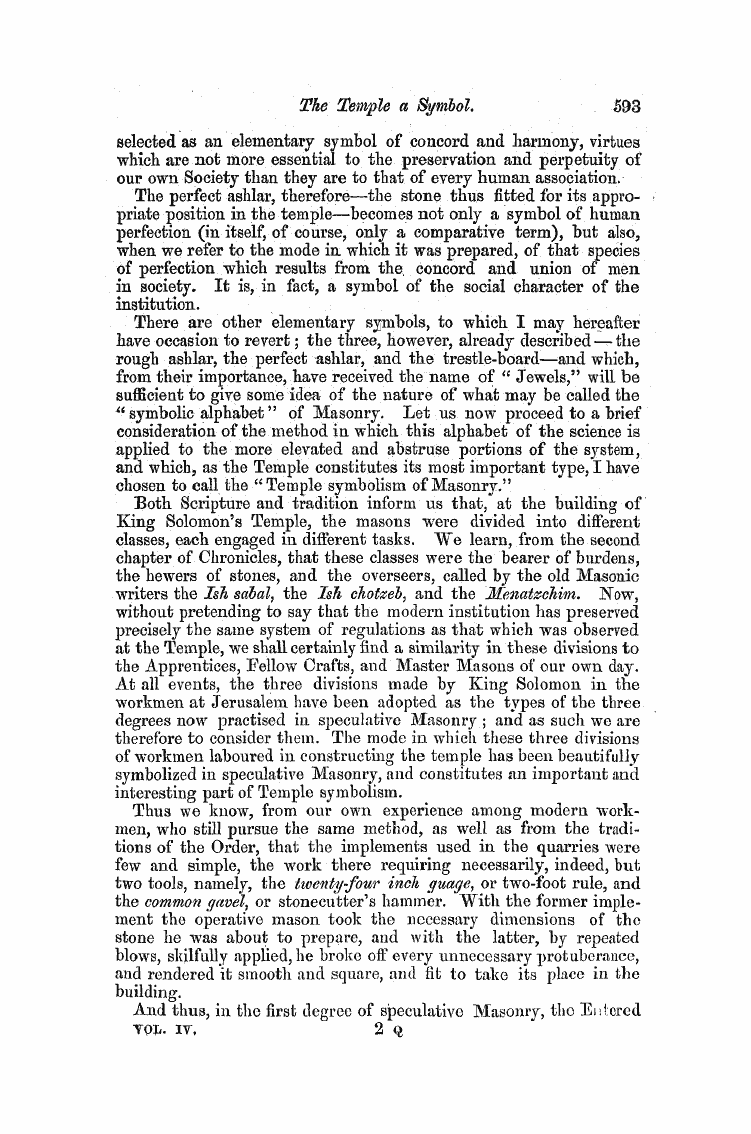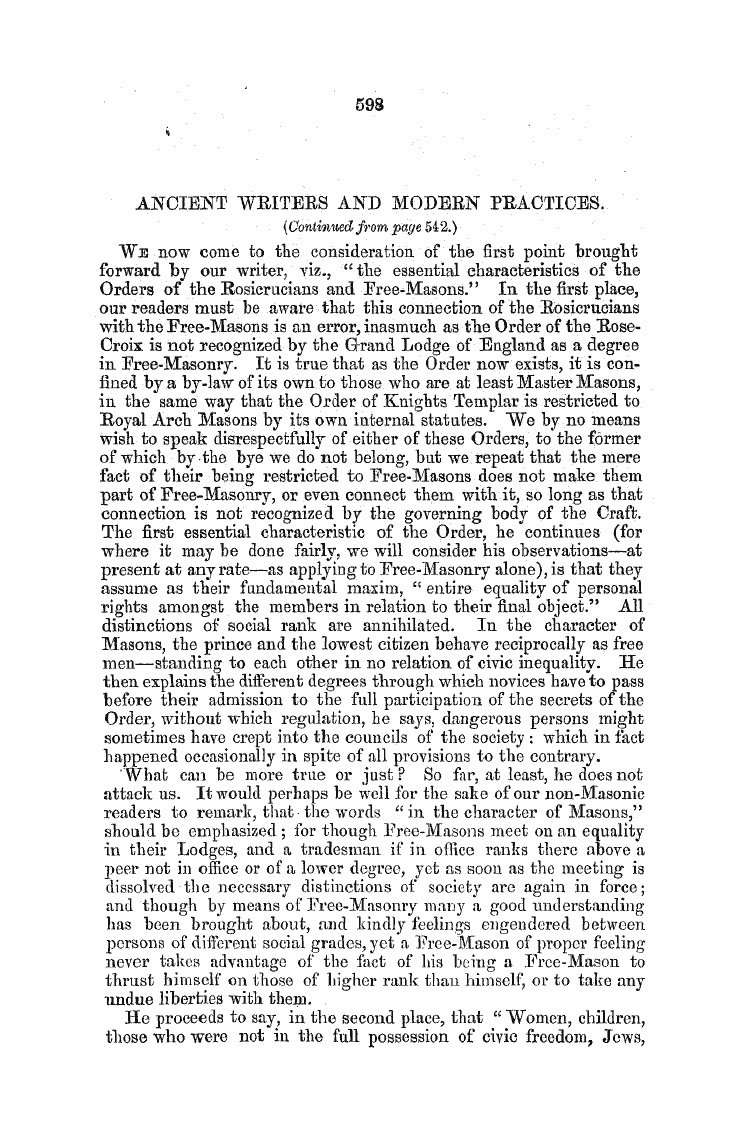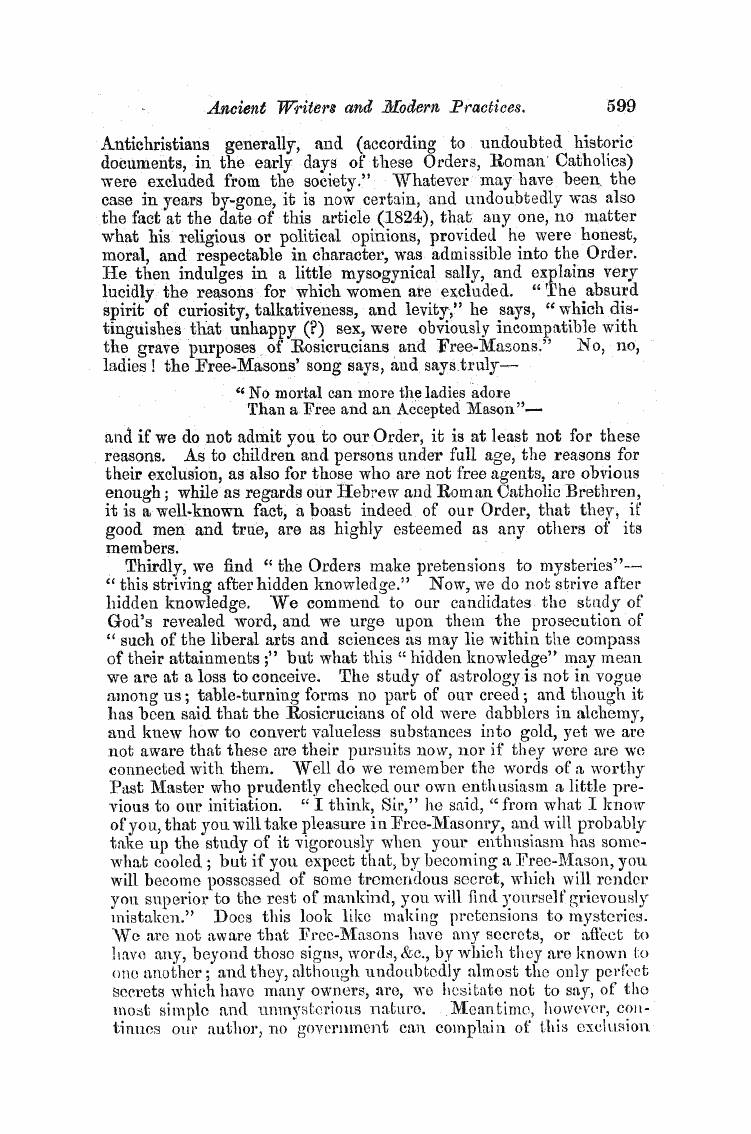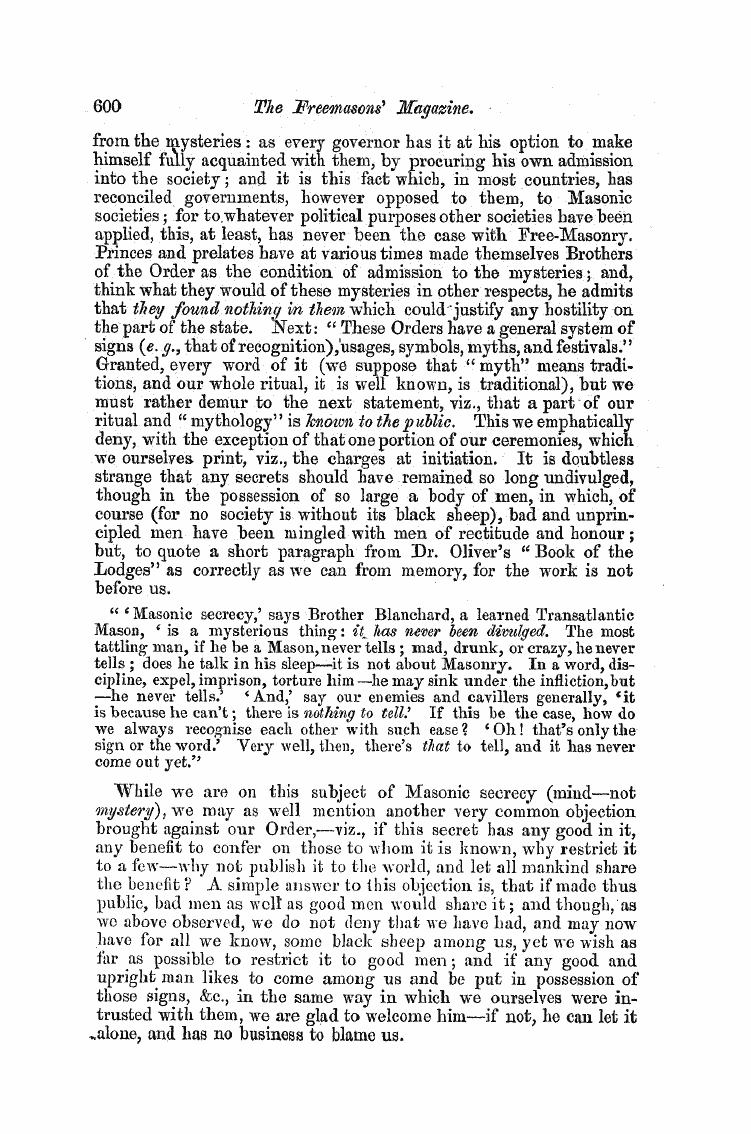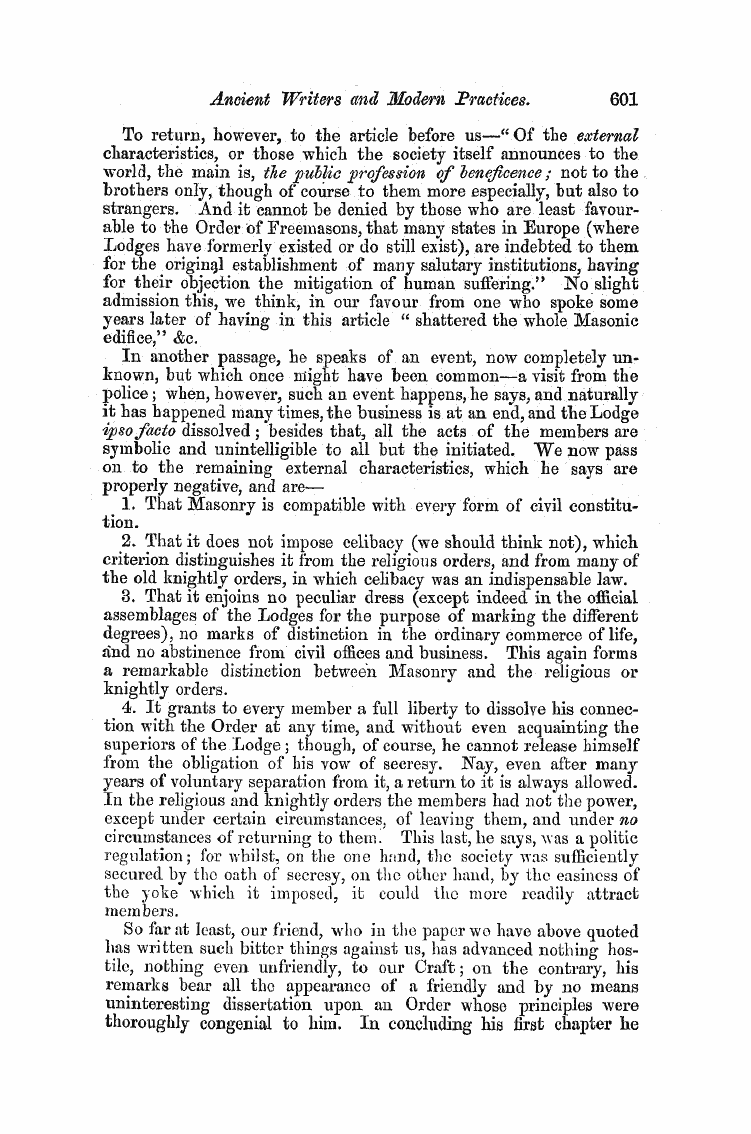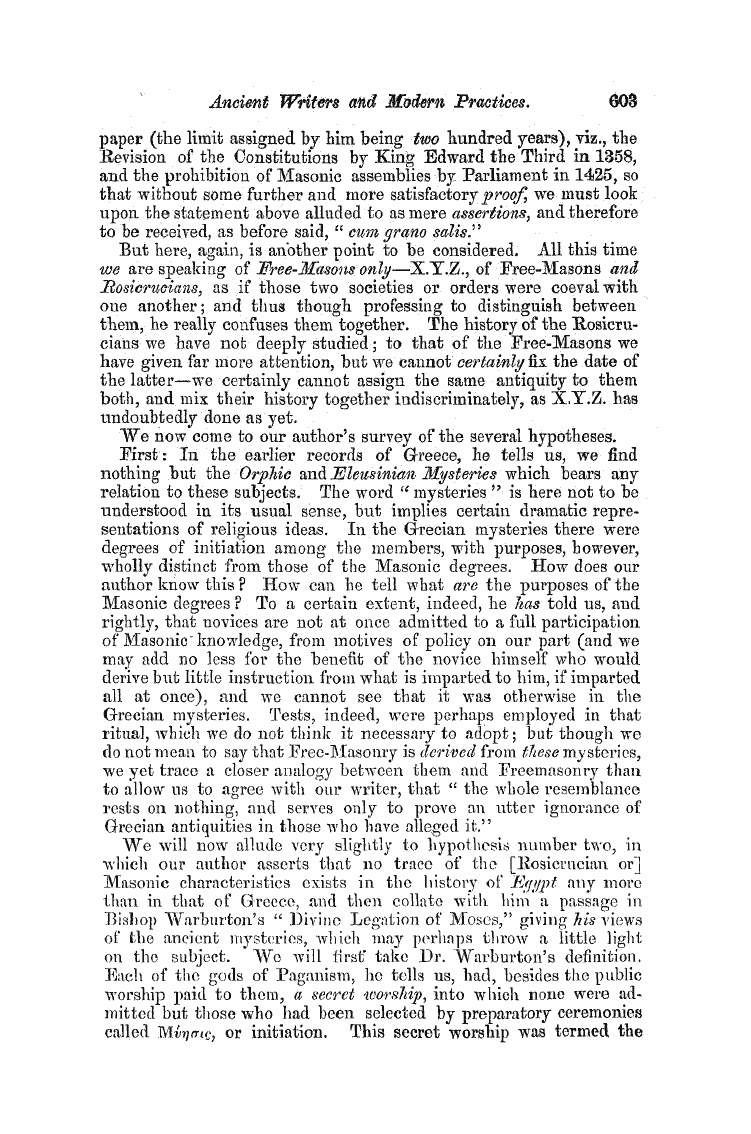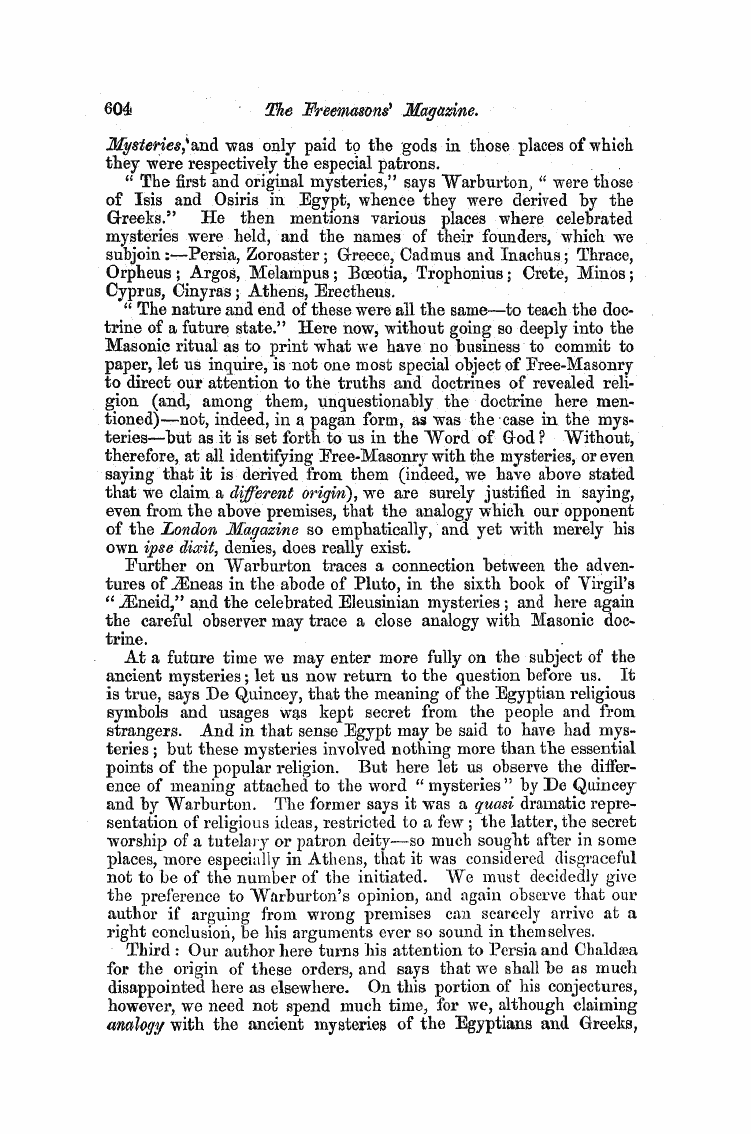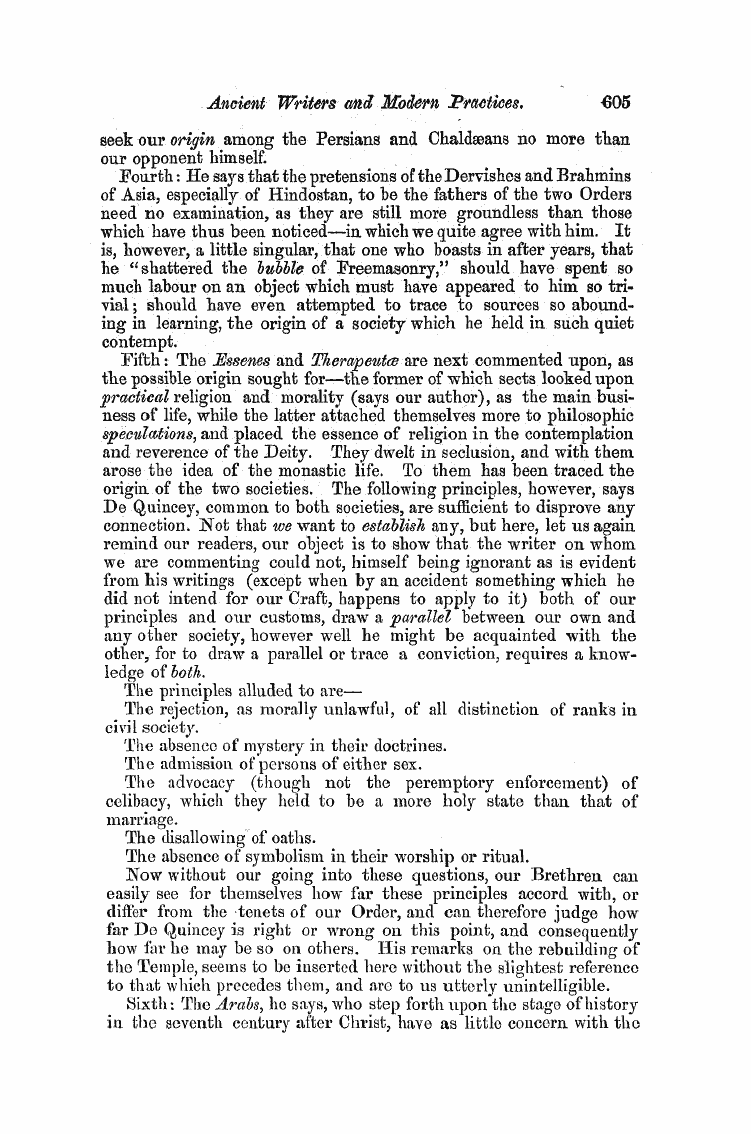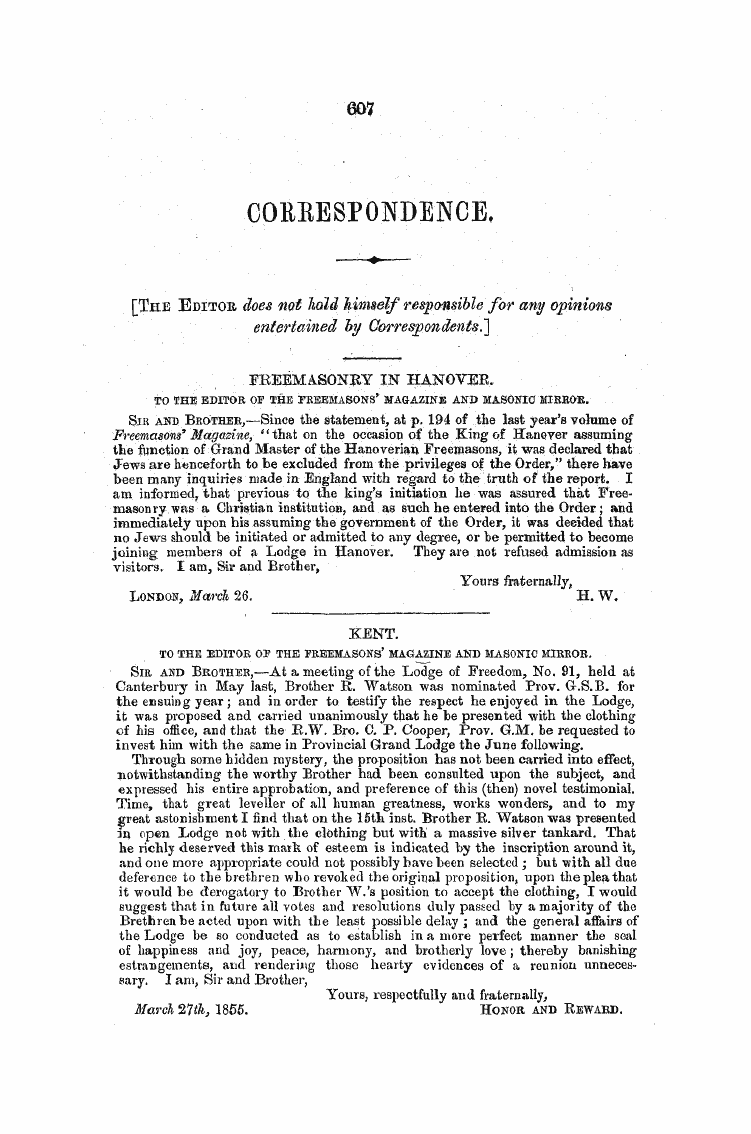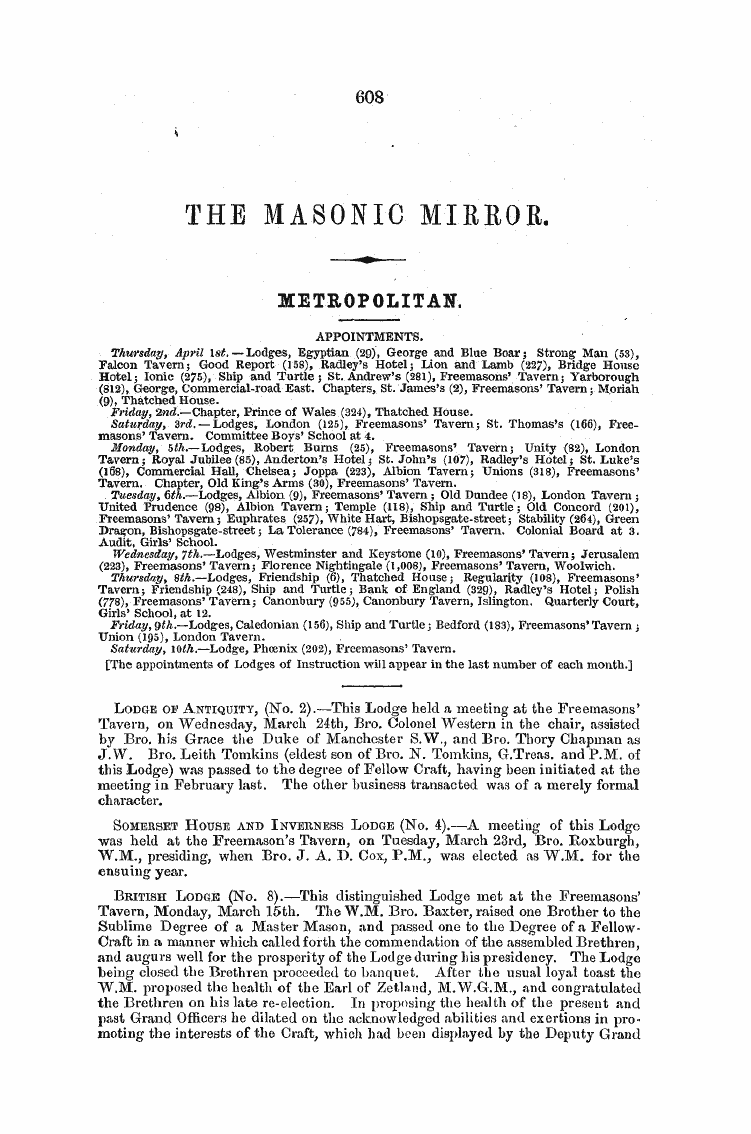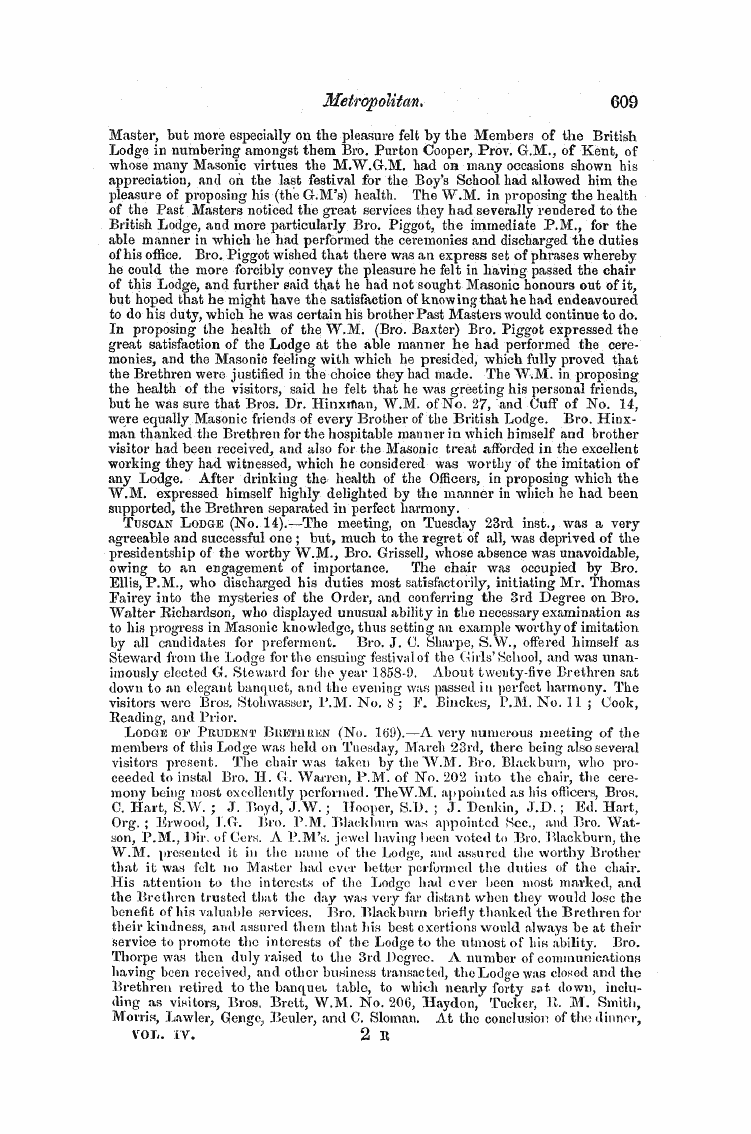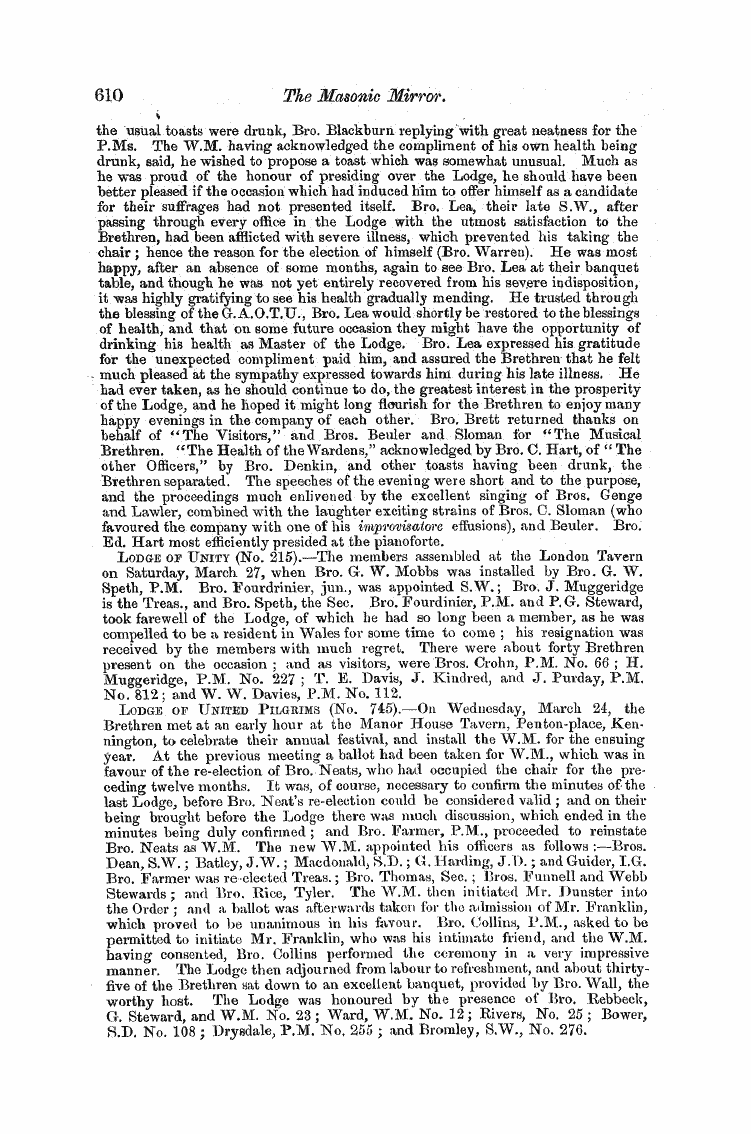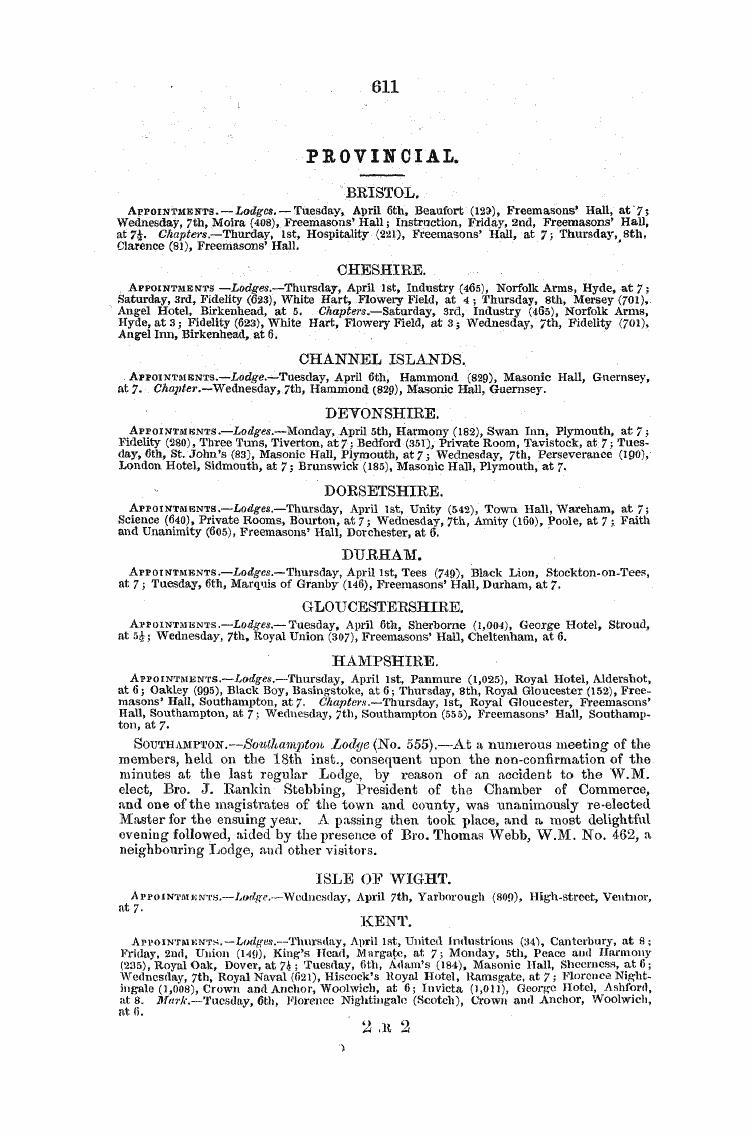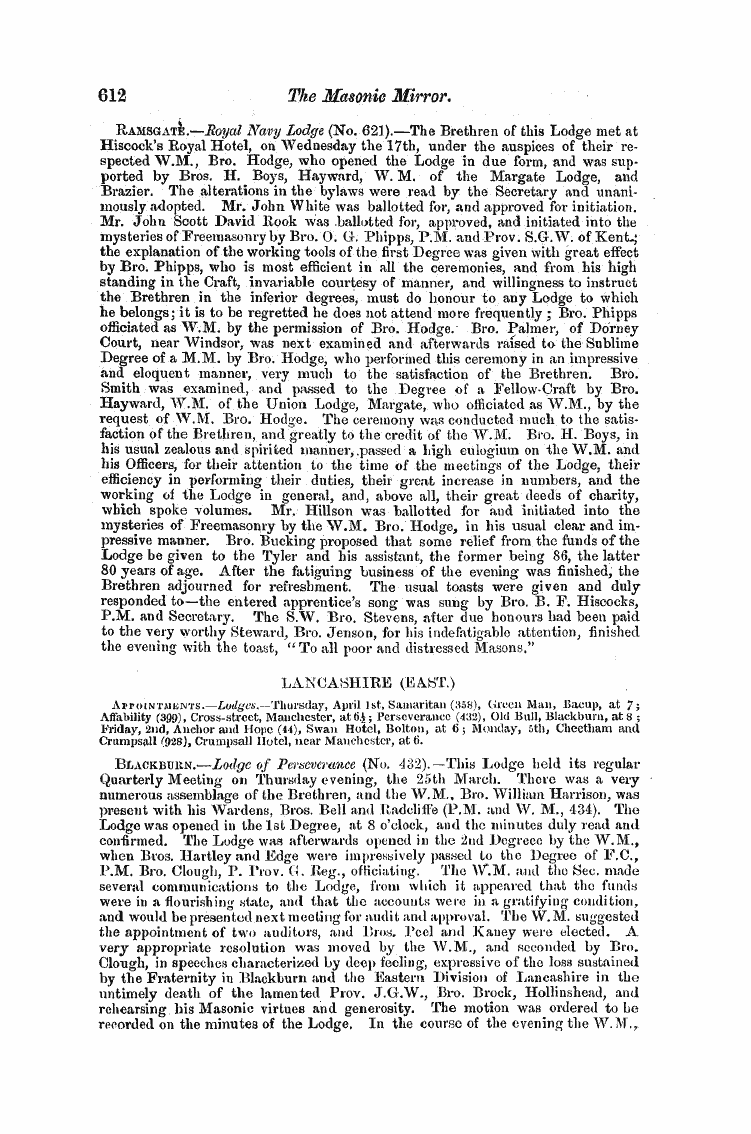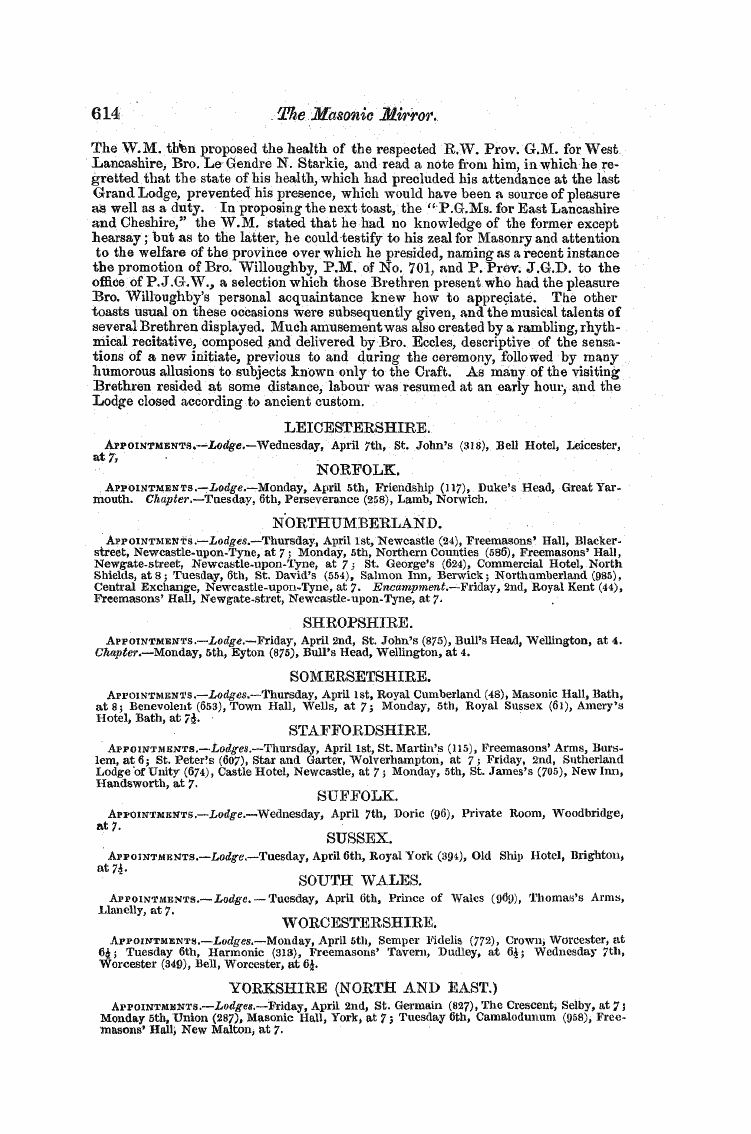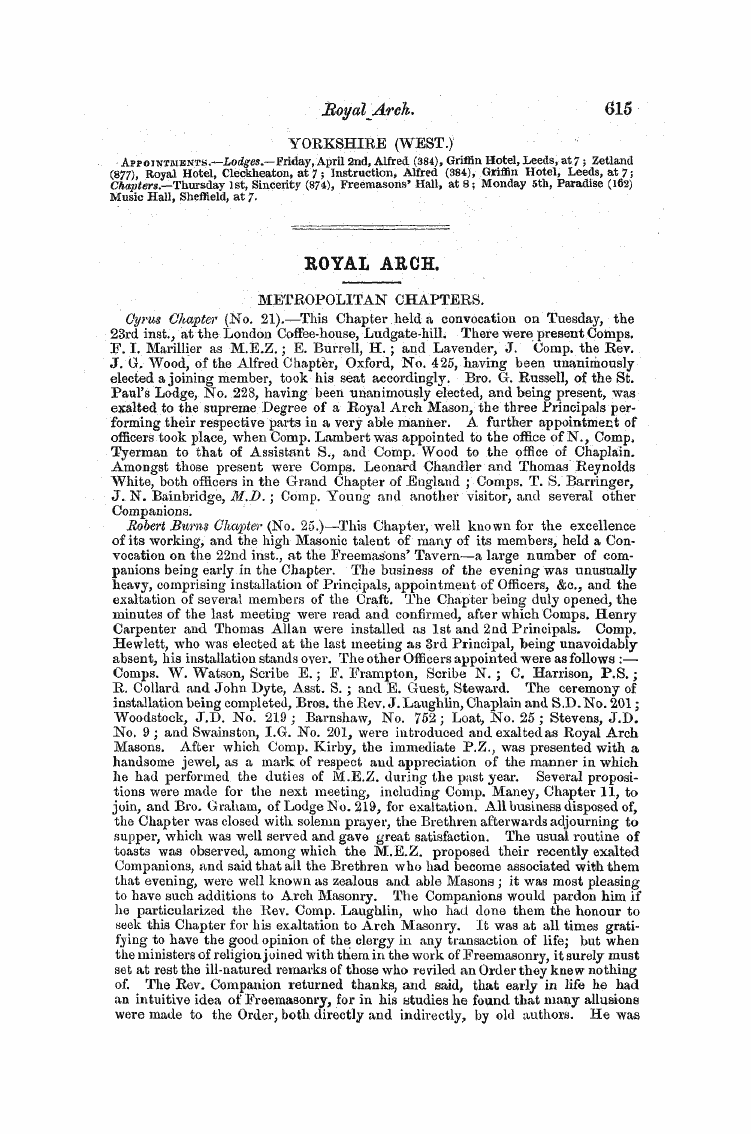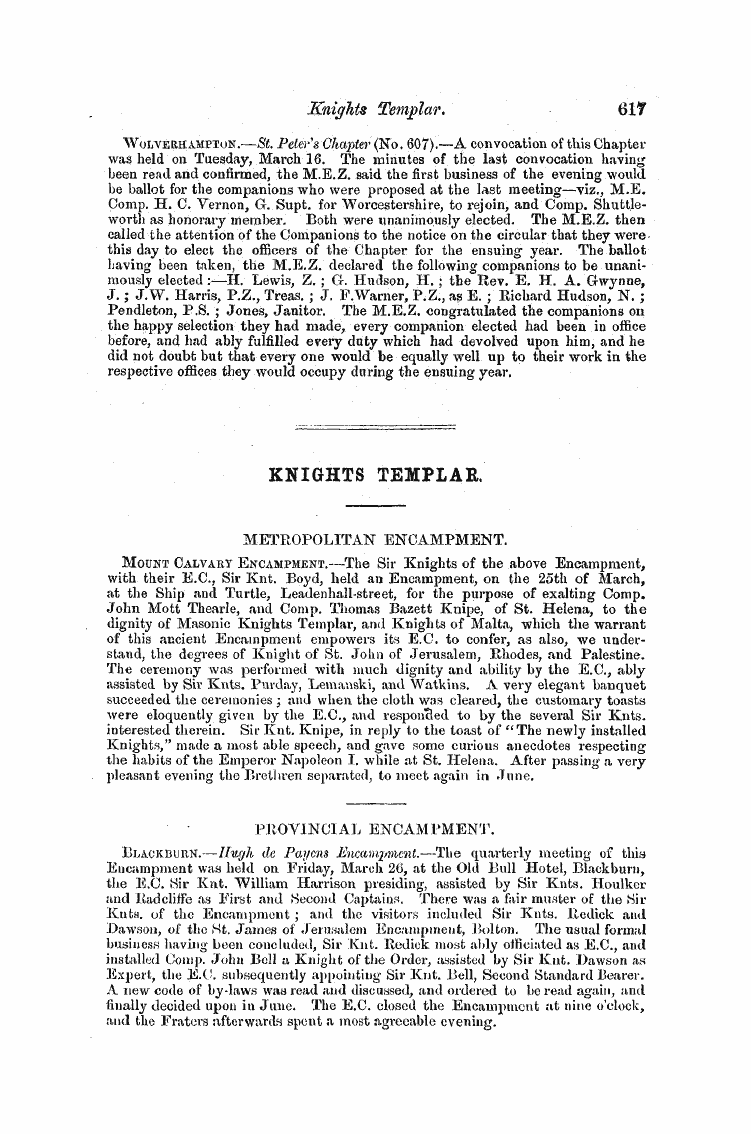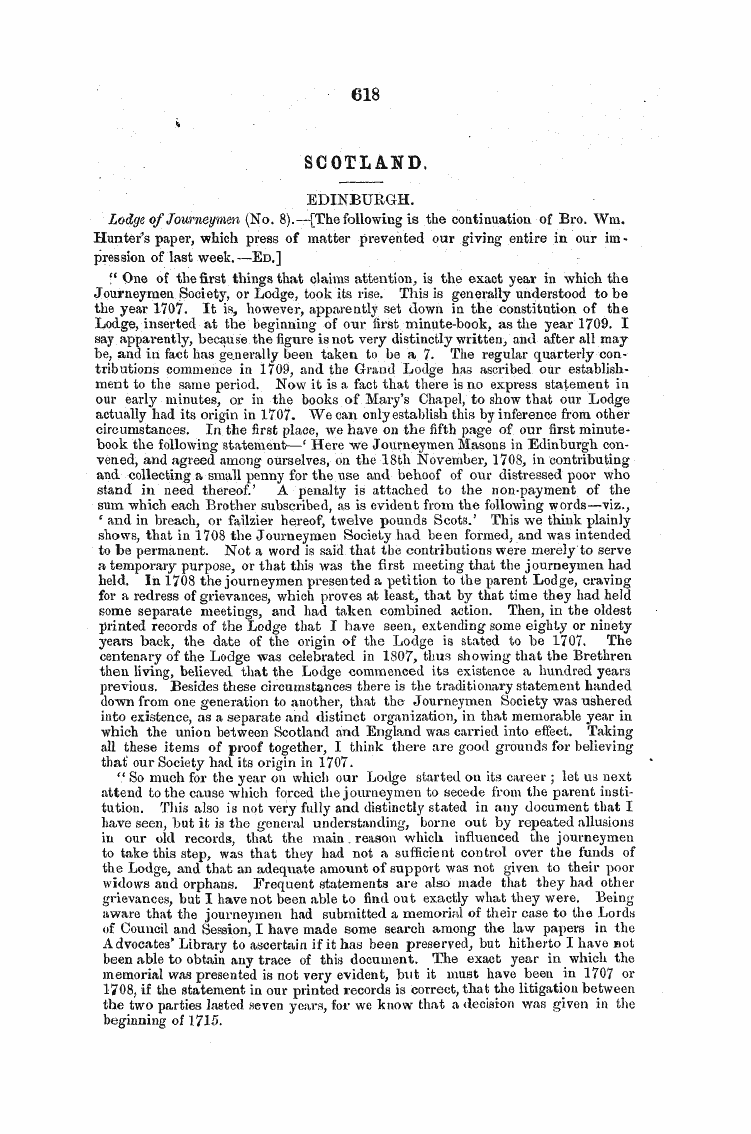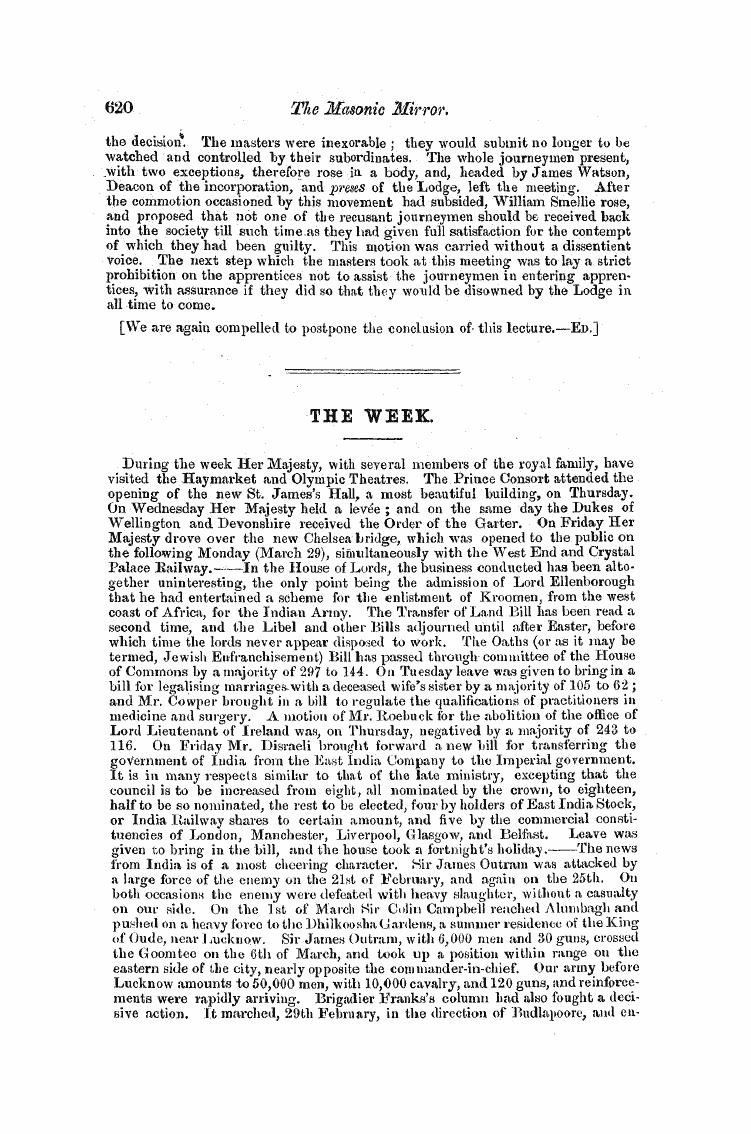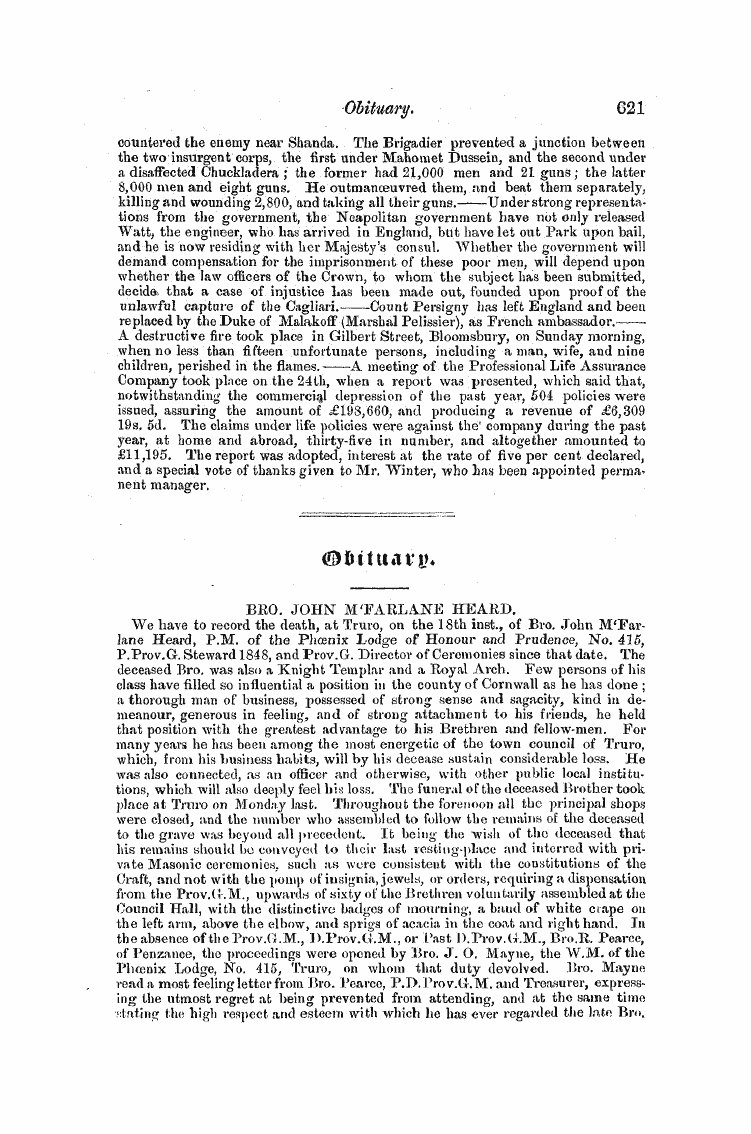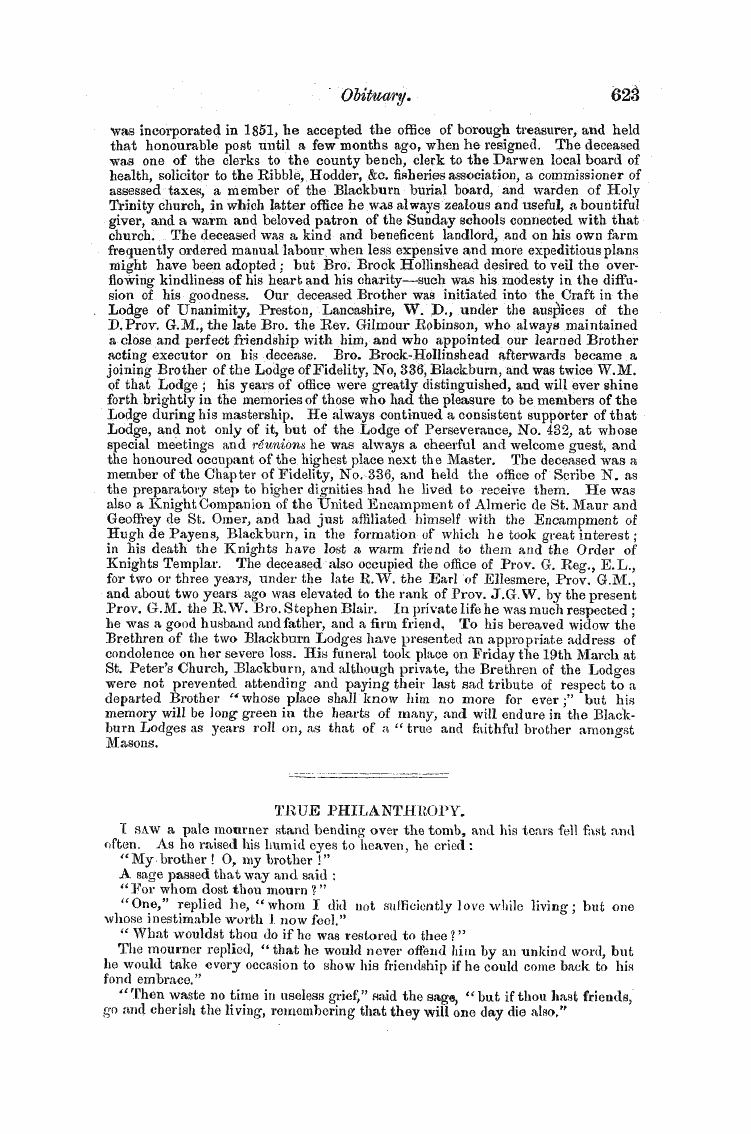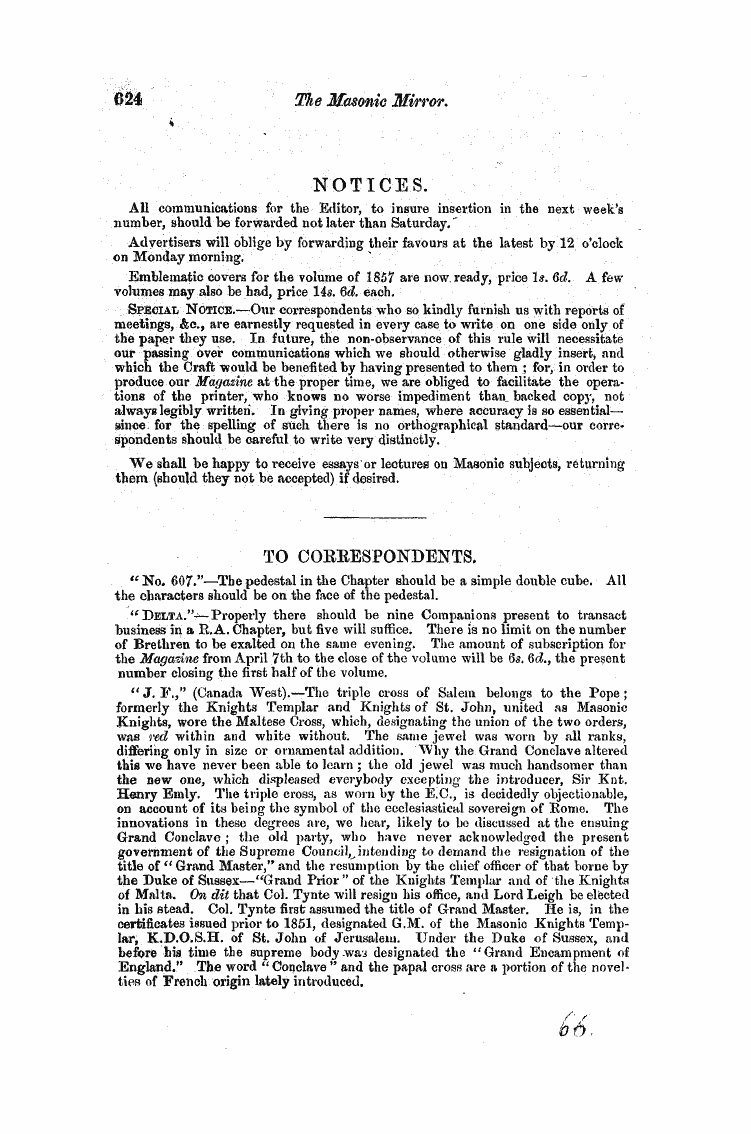-
Articles/Ads
Article V ANCIENT WR1TEES AND MODEEN PRACTICES. ← Page 4 of 5 →
Note: This text has been automatically extracted via Optical Character Recognition (OCR) software.
V Ancient Wr1tees And Modeen Practices.
of small circulation more than a quarter of a century since , and we cannot but do full justice to the talent of so sarcastic but yet goodhumoured an opponent .
Uur author begins his paper by remarking that there is a large body of outstanding problems in history , great and little—some relating to persons , some to things , some to usages , and some to words —& c ., ' which furnish occasion , beyond any other form of historical researches , for the disolav of extensive reading and critical
acumen ; and that , ( after sundry instances adduced of all these four classes ) there are not many among the first class more irritating to the curiosity than that which concerns the well-known order of "Free-Masons , " on which subject no work 'in our language has treated the question with much learning . He has therefore abstracted , rearranged , and in some respects he scruples not to say improved , the Grerman work on this subject by Professor J . Gh
Buhle , which is an expansion of a Latin dissertation read by the Professor , in the year 1803 , to the Philosophical Society of Grottingen , and which he believes , in respect to the particular sort of merit looked for in a work of this kind , has satisfied the most competent judges . We have looked for Bnhle ' s paper , but we find it is somewhere in eight large volumes , and have no doubt that our readers will be perfectly contented with a notice of X . T . Z . ' s abridgement of it , which is , we dare say , quite as good as the original . The
Proiessor s pecuhar claims to distinction m this inquiry , are grounded upon the solution , in the first instance , of the question , "What is the origin of Free-Masonry ? " This is a question which has puzzled many as wise a head as that of Professor Buhle , or Mr . Be Quincey either ; for though we are not ourselves so enthusiastic as to carry it back , with some of our more san & 'uine Brethren , almost to a
"pre-Adamite period , yet we have no hesitation in assigning to its origin a date far earlier than that allowed by our learned German opponent , or his English transcriber . " As to the secret of Free-Masonry , " says the latter , " and its occult doctrines , there is a readier and more certain way of getting at those than through any Professor ' s book . " In this latter sentiment we quite agree with our friend ; and that way , the only way in fact that we know of , is by being initiated in a regularly
constituted Lodge , though we rather suspect that is not the way he meant . As for its doctrines , however , they are not occult , they are patent to all the world ; and though we do not in all points entirely agree with the Eev . Bro ., Dr . Oliver , yet his works , to say nothing of the pages of this periodical , are most free exponents of these same " occult doctrines , " and we need not therefore now write a chapter on " Brotherly Love , Belief , and Truth . "
Professor Buhle , continues our author , is celebrated as a logic professor at a great Grerman university ; but a more illogical work than his , as to the conduct of the question , or one more confused in its arrangement , he has not often seen . " There is , " he says , " an everlasting confusion in the worthy man ' s mind between the two rpiestions , — 'What is the origin of Free-Masonry ?*
Note: This text has been automatically extracted via Optical Character Recognition (OCR) software.
V Ancient Wr1tees And Modeen Practices.
of small circulation more than a quarter of a century since , and we cannot but do full justice to the talent of so sarcastic but yet goodhumoured an opponent .
Uur author begins his paper by remarking that there is a large body of outstanding problems in history , great and little—some relating to persons , some to things , some to usages , and some to words —& c ., ' which furnish occasion , beyond any other form of historical researches , for the disolav of extensive reading and critical
acumen ; and that , ( after sundry instances adduced of all these four classes ) there are not many among the first class more irritating to the curiosity than that which concerns the well-known order of "Free-Masons , " on which subject no work 'in our language has treated the question with much learning . He has therefore abstracted , rearranged , and in some respects he scruples not to say improved , the Grerman work on this subject by Professor J . Gh
Buhle , which is an expansion of a Latin dissertation read by the Professor , in the year 1803 , to the Philosophical Society of Grottingen , and which he believes , in respect to the particular sort of merit looked for in a work of this kind , has satisfied the most competent judges . We have looked for Bnhle ' s paper , but we find it is somewhere in eight large volumes , and have no doubt that our readers will be perfectly contented with a notice of X . T . Z . ' s abridgement of it , which is , we dare say , quite as good as the original . The
Proiessor s pecuhar claims to distinction m this inquiry , are grounded upon the solution , in the first instance , of the question , "What is the origin of Free-Masonry ? " This is a question which has puzzled many as wise a head as that of Professor Buhle , or Mr . Be Quincey either ; for though we are not ourselves so enthusiastic as to carry it back , with some of our more san & 'uine Brethren , almost to a
"pre-Adamite period , yet we have no hesitation in assigning to its origin a date far earlier than that allowed by our learned German opponent , or his English transcriber . " As to the secret of Free-Masonry , " says the latter , " and its occult doctrines , there is a readier and more certain way of getting at those than through any Professor ' s book . " In this latter sentiment we quite agree with our friend ; and that way , the only way in fact that we know of , is by being initiated in a regularly
constituted Lodge , though we rather suspect that is not the way he meant . As for its doctrines , however , they are not occult , they are patent to all the world ; and though we do not in all points entirely agree with the Eev . Bro ., Dr . Oliver , yet his works , to say nothing of the pages of this periodical , are most free exponents of these same " occult doctrines , " and we need not therefore now write a chapter on " Brotherly Love , Belief , and Truth . "
Professor Buhle , continues our author , is celebrated as a logic professor at a great Grerman university ; but a more illogical work than his , as to the conduct of the question , or one more confused in its arrangement , he has not often seen . " There is , " he says , " an everlasting confusion in the worthy man ' s mind between the two rpiestions , — 'What is the origin of Free-Masonry ?*

































































































































































































